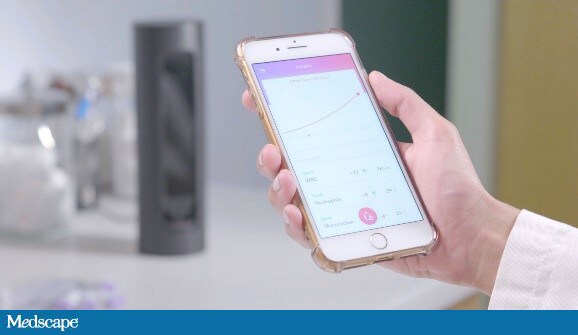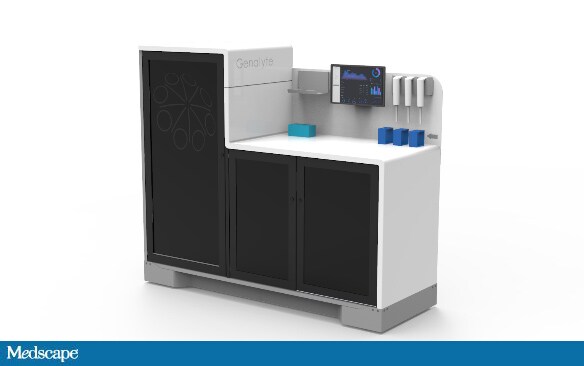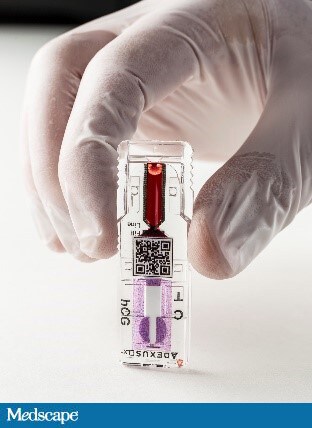If Theranos’ promise of a comprehensive blood test from a drop of blood sounded too good to be true, that’s because it was. The $9 billion startup, led by CEO Elizabeth Holmes, promised a healthcare revolution and the commercialization of blood tests. When Holmes realized that her vision of a microneedle patch to take blood was not within the realm of reality, she turned to fabricating blood test results to the point of risking patient lives. Bad Blood: Secrets and Lies in a Silicon Valley Startup, by Wall Street Journal investigative journalist John Carreyrou, recounts the story of how Holmes was able to deceive Silicon Valley investors for more than a decade.[1] Carreyrou describes the Orwellian nature of Theranos and Holmes’s obsession with success, as seen through a determination for financial gain that stemmed back to her youth and later emulation of Steve Jobs.
Holmes’s promise of having a blood test reader in every home may not come to fruition any time soon, but many companies are innovating in the field of blood tests with products that have evidence to back them up. While many of these startups are facing skepticism from investors and consumers due to the infamous legacy left by Theranos, here are 10 companies that are working to repair the reputation of blood test biotechnology.
Athelas


Athelas is a finger-prick blood test that monitors platelets, white blood cells, neutrophils, lymphocytes, and more. After pricking your finger, blood is placed on a test strip which is then inserted into the Athelas device. Within a minute, you can view blood count data on your phone.[2] Athelas is primarily targeted to oncologists, who can monitor their patients’ immune systems while they’re undergoing chemotherapy from the comfort of their homes. Athelas is currently awaiting approval by the US Food and Drug Administration (FDA) and provides all accuracy data and research methodologies to the public. The startup was founded in 2016 by CEO Tanay Tandon when he was just 17 years old, and has already managed to raise $3.7 million.
Cholestech
Abbott’s Cholestech LDX Analyzer is a device that tests blood glucose and cholesterol levels. Cholestech is able to test total cholesterol as well as low-density and high-density lipoprotein cholesterol levels.[3] Through Cholestech, physicians can monitor their patient’s disease risk or treatment effect for diabetes, heart disease, and other cardiovascular diseases. Abbot states that Cholestech provides “immediate awareness and identification of cardiovascular and diabetes health risks in only 5 minutes.”[4]
Grail Inc.
Since 2016, Grail Inc. has raised $1.5 billion towards its liquid biopsy products.[5] Through genetic sequencing, Grail aims to detect cancers before the emergence of any symptoms. The method is known as “high-intensity” genomic sequencing, which picks out DNA released by tumors into the blood. A recent clinical trial of Grail, including patients from Mayo Clinic and Memorial Sloan Kettering, found that Grail correctly recognized liver and ovarian cancers 80% of the time, with lower accuracies for breast cancer (detected 21% of the time), prostate cancer, and melanoma (both of which had under 10% accuracies).[6]
Genalyte

Genalyte’s Merlin 1.0 device is a portable trolley that can perform blood tests, typically sent to laboratories, in the convenience of a doctor’s office or surgical theater. Genalyte also claims that its device can provide results in 15 minutes rather than the standard few days that labs require, and can run up to 128 different tests through a single drop of blood.[7] CEO Cary Gunn recognizes that Genalyte seems to be heir to the throne, or void rather, left behind by Theranos, but asserts that rather than trying to reinvent the wheel, Genalyte is simply bringing the blood tests already conducted in labs right to the doctor’s office.[8]
Orphidia
Orphidia aims to transform the healthcare industry through single-use disposable chips for lab testing. Results of 40 different blood tests performed on a small sample of blood can be sent from a portable tabletop analyzer to your phone in 20 minutes.[9] The Orphidia analyzer can monitor various biomarkers in the blood and send data to any device through a secure cloud. Founded in 2013, Orphidia has raised over $3 million in seed funding.[10]
Karius


The Karius test is a next-generation sequencing assay to identify pathogens for diagnosing infectious diseases. The test can identify more than 1000 pathogens, including more than 750 bacteria, 300 molds and fungi, and 100 DNA viruses.[11] In order to run the Karius test, a standard 5-mL whole blood test vial is required. Results are delivered as a one-page report, outlining pathogens that were prevalent at significant levels.
Abaxis
Founded in 1989, Abaxis is not new to the biotechnology startup scene. Abaxis has developed a method of manufacturing stable reagents in extremely small quantities, known as Orbos technology.[12] Orbos technology is used to measure various parameters from minute amounts of blood, which led to the development of the Piccolo analyzer in 1995. The Piccolo analyzer uses reagent discs to complete 31 on-site diagnostic tests, requiring about three to four drops of blood. In the same year, the VetScan analyzer was released to meet the same needs for veterinarians.
Now Diagnostics


Now Diagnostics is similar to the other startups mentioned here in that it is able to complete a blood test in minutes with just one drop of blood. Rather than one device that can complete a plethora of tests, however, Now Diagnostics’ product line caters to specific conditions.[13] Its ADEXUSDx line includes tests for pregnancy, heart attacks, toxicology, sexually transmitted diseases, food allergies, and common infectious diseases. Diagnostic tests range from detecting syphilis, to strep throat, to a shellfish allergy. Now Diagnostics states that its pregnancy test, First To Know, is 99% accurate and can provide results within 10 minutes.[14]
Day Zero Diagnostics
Day Zero Diagnostics also employs genomic sequencing in its technology but uses it to identify antibiotic resistance. Day Zero states that its diagnostic test can identify the species and antibiotic resistance of a pathogen within hours, as opposed to the 2-5 days required by a lab.[15] Through this assessment, physicians can use targeted antibiotics to treat their patients, reducing the length of hospital stays, cutting costs, and avoiding the 8% increase in mortality per hour associated with the typical time delay for blood test results. Day Zero won the 2017 MedTech Innovator Global Competition, receiving $350,000.[16]
rHEALTH
Only one drop of blood is required for the rHEALTH reader, which can identify over 100 diseases and communicate to your smartphone via the SKYE sensor and Bluetooth.[17] rHEALTH is also currently partnered with NASA and says on its site that even an astronaut crew member can use its device for a self-diagnosis without any technical training. Beginning in 1998 as a software company, rHEALTH shifted its focus to the healthcare field in 2006 and aims to decentralize laboratory blood tests through wearable devices.[18]
No comments:
Post a Comment
Note: Only a member of this blog may post a comment.